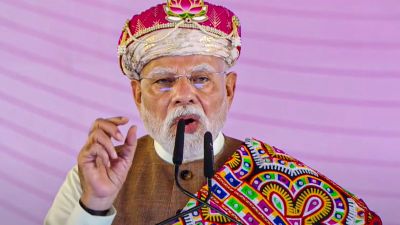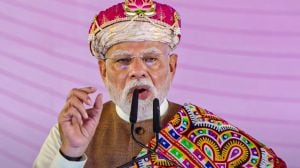Your Q, His A: Jasjit Singh
Air commodore Jasjit Singh, Editorial Advisor (Defence and Strategic affairs) to The Indian Express, answers your questions on strategic iss...

Air commodore Jasjit Singh, Editorial Advisor (Defence and Strategic affairs) to The Indian Express, answers your questions on strategic issues. Singh, a former director of the Institute of Defence Studies and Analysis, can be reached at jasjitsingh@expressindia.com.
Has there been any precedent to the incident of the Army pilot showering flowers on his beloved in Rajasthan? If so, what has been the action taken?
SUCH incidents have often taken place in all countries. In India, we have been becoming increasingly strict on this issue. The act may be gallant in some ways, but it places the aircraft and the people and property in the area at grave risk. There is no professional value in such displays which, on the other hand, reflect gross indiscipline. More often than not, pilots who carry out such acts are young and immature. Deficiencies in pilot selection and training can also contribute to the phenomenon often referred to as ‘‘attitudinal deficiency’’. Unlike in most other professions, including in the military, the pilot is normally alone up in his aircraft. Discipline for aviators, therefore, must come from within, where no one is overseeing his (or her) actions. Punishments for such violations normally are exemplary.
What is happening to the US war against terrorism?
THE US war against terrorism appears to have plateaued, at least in Afghanistan. The Taliban and Al Qaeda have been dispersed but not eliminated. In fact, very few of their leaders have been accounted for. They and their cadres are believed to have slipped out to Pakistan which has increased vigilance on its Afghanistan border. Ten of its soldiers were even killed in a firefight with Al Qaeda terrorists.
In essence, therefore, US war against terrorism has shifted inside Pakistan. But given the nature of the situation, Washington has less leverage now with Islamabad than in September last year. Even these may reduce further after an elected civilian government is installed in Islamabad after the October elections, since they will have to be more sensitive to public opinion and would demand greater support from the United States and its allies. On the other hand, the army is likely to continue with its traditional policy of supporting jihadis.
General Musharraf’s visit to Bangladesh is being seen by many as the beginning of a new partnership between our two neighbours, possibly ganging up against India. What do you see as the impact on India?
VISITS by the heads of state of either country to the other have been taking place over the years. There is a perception that the present government in Dhaka is less friendly to India than its predecessor. This impression has grown because Sheikh Hasina was seen as close to India and domestic politics had led to the opposition led by the present party in power to rely on a great deal of anti-India rhetoric.
But the reality is that relations between Bangladesh and India continue to remain close and friendly. There is a vast range of issues where the interests of Bangladesh and India converge and which require deepening of the existing co-operative relationship.
On the other hand, Pakistan stands isolated in the international community despite the legitimacy provided by the new American approach. This isolation is present even in Muslim countries since they see the alliance with America as undermining the Islamic cause. It would be natural to expect General Musharraf trying to reverse this trend.
Hence the visit to Dhaka would try to reduce Pakistan’s own isolation while trying to obtain Bangladesh’s support for its own policies. In the process we need to make a distinction between rhetoric that may emerge out of the visit and substance in terms of relations with our neighbours.
Photos


- 01
- 02
- 03
- 04
- 05





























